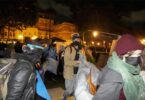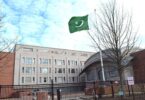BRASILLIA (Agencies): Brazilian President Luiz Inacio Lula da Silva announced the formal recognition of six Indigenous reservations of nearly 800 square miles (161,500 hectares), thereby fulfilling a campaign promise to reverse the policy set under his far-right predecessor Jair Bolsonaro.
Of the six ancestral lands recognized by Lula, the two largest are in the Amazon rainforest.
What is the significance of the announcement?
While the land will remain under the federal government’s jurisdiction, the announcement grants Indigenous communities the exclusive right to use it in their traditional manner. Scientists have estimated Indigenous traditions act as a protection against the deforestation of the Amazon.
On the recognized lands, mining will be prohibited while commercial farming and logging require special permits. Individuals who are not Indigenous will be prohibited from engaging in any commercial activities on the land.
The announcement was made as part of the annual meeting in Brasilia of representatives of Brazil’s one million Indigenous people. The so-called Free Land Camp featured music, dance and food in tents set up on the grass esplanade of Brazil’s capital for five days.
Indigenous leaders had called on the president to speed up the classification of some 300 Indigenous territories which are currently not formally recognized. They showed some frustration that Lula’s actions were limited in size after his government had pledged to create 14 new territories rather than six.
Lula had also created a Ministry of Indigenous People on his first day in office and announced Sonia Guajajara, the leader of the main Indigenous umbrella organization APIB, to head it.
Ongoing conflict between farmers and Indigenous communities
Former President Jair Bolsonaro had made clear to not give “one more centimeter” of land to reservations, publicly stating that Indigenous people had too much land for the size of their population. Bolsonaro was backed by the powerful farm lobby and the country’s agricultural sector. Indigenous demarcation had been halted in 2018 after Bolsonaro gave a promise to the agribusiness sector.
Farm sector representatives in Congress are calling for the implementation of a new law that would enable a cut-off date for reservations that were not inhabited at the time of Brazil’s current constitution being enacted in 1988. Tens of thousands of Indigenous would be left without the protection of official reservation land should the deadline be enforced. The country’s Supreme Court is set to rule on the new legislation in July.
Without the state’s protection, the danger of invasions by illegal loggers and wildcat gold miners, which surged under Bolsonaro, will increase for Indigenous communities.







